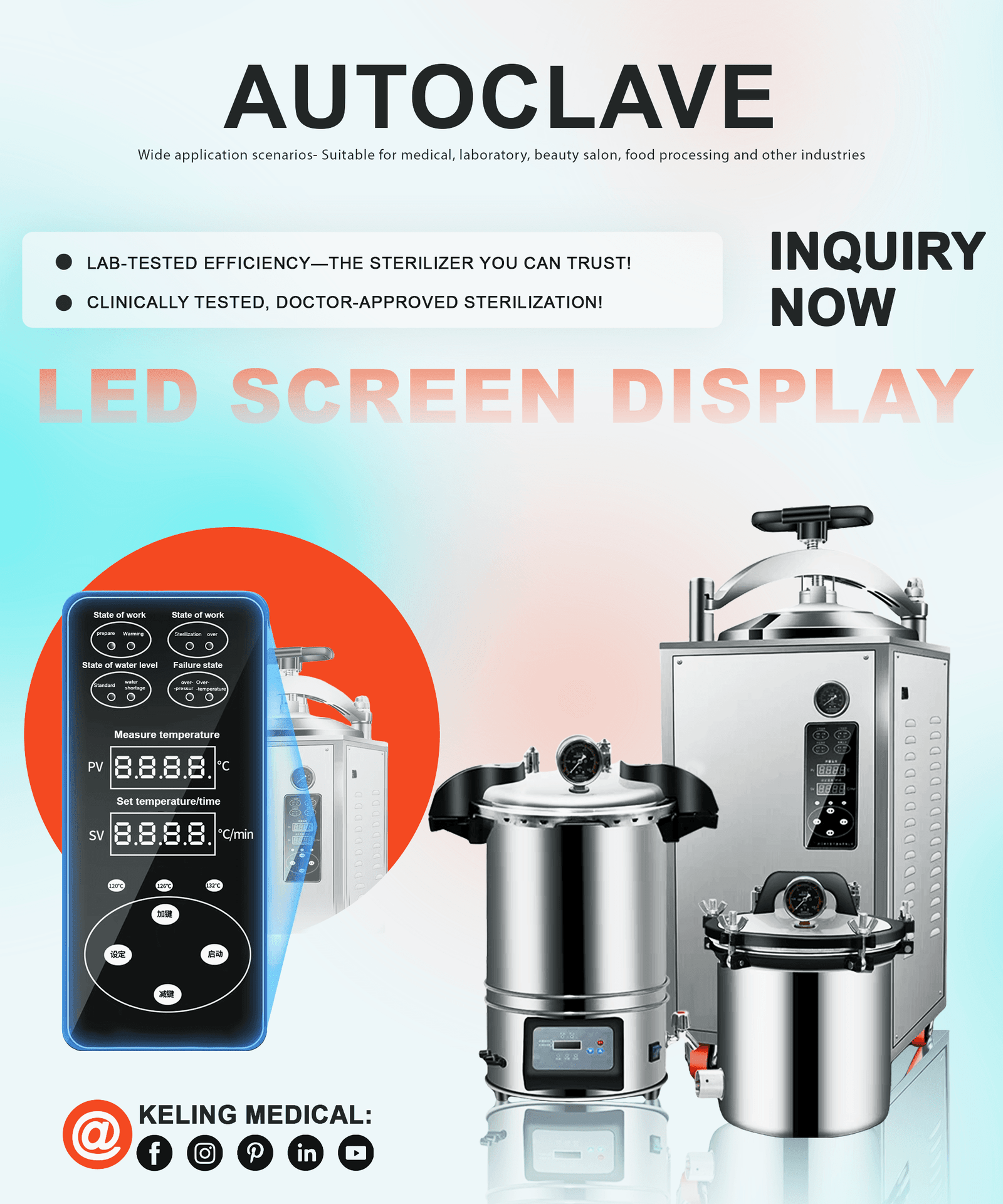
Industrial autoclaves function as large-scale high-pressure sterilization units meant to destroy bacteria and viruses along with other microorganisms found on medical and laboratory equipment. Through steam and pressure these machines sterilize healthcare tools to maintain safety and hygiene standards.
Industrial autoclave sterilization consists of three fundamental steps.
Heating: Steam fills the autoclave chamber and raises its temperature to the predetermined level.
Pressurization: The autoclave chamber undergoes pressurization to allow steam to reach all surfaces of the equipment being sterilized.
Sterilization: The equipment undergoes exposure to high-temperature steam for a set period which effectively destroys all microorganisms.
Industrial autoclaves serve multiple industries for diverse applications.
Reusable equipment together with medical tools and surgical instruments undergo sterilization.
Ensuring compliance with strict hygiene standards.
Sterilizing laboratory equipment and waste.
Preventing cross-contamination in research and testing processes.
Sterilization of production materials and packaging.
Ensuring products meet safety regulations and industry standards.
Industrial autoclaves boast the capability to process massive amounts of equipment which makes them perfect for hospitals and both laboratory and production settings.
Manufacturers equip modern autoclaves with programmable control systems which enable users to tailor sterilization cycles to meet precise needs.
Industrial autoclaves feature energy-saving systems to lower operational expenses while preserving excellent performance.
Industrial autoclaves incorporate premium materials so they can operate efficiently for extended periods without performance degradation.
Industrial autoclaves fully sterilize medical equipment to lower contamination and infection risks.
Businesses can adhere to strict healthcare safety standards by implementing industrial autoclaves.
The sterilization capabilities of industrial autoclaves allow businesses to reuse equipment instead of purchasing disposables which leads to sustained cost reductions.
Industrial autoclaves can effectively sterilize diverse materials like metal, glass, and some plastic varieties.
Business owners should evaluate several factors when selecting an industrial autoclave for their operations.
Estimate how much equipment you need to sterilize daily to select an autoclave with sufficient capacity.
Verify that your autoclave conforms to recognized international sterilization standards including ISO 13485 and EN 285.
Select autoclaves with power-saving capabilities to reduce the costs of operation.
Select a supplier who delivers dependable maintenance services along with expert technical support.
The use of industrial autoclaves is crucial for preserving the cleanliness and safety standards of medical devices. Distributors, resellers and procurement professionals who invest in high-quality autoclaves can meet healthcare standards and optimize expenses. Contact us if you need dependable and effective industrial autoclaves.
Industrial autoclaves are designed for long-term use and can last 10–15 years or more with proper maintenance.
Industrial autoclaves are effective for sterilizing metal, glass, and certain plastics. However, some materials may not withstand high temperatures and pressure.
Regular maintenance is essential for optimal performance. It is recommended to schedule maintenance at least once a year or as per the manufacturer’s guidelines.
Many modern industrial autoclaves are designed with energy-efficient features, reducing their environmental impact.
Yes, most industrial autoclaves come with programmable control systems, allowing users to customize sterilization cycles based on their requirements.
For more information about industrial autoclaves or to request a quote, please contact us:
Email: inquiry@shkeling.com
WhatsApp: Click here to chat
Website: https://autoclaveequipment.com/
Let us help you find the perfect sterilization solution for your business!

The autoclaving process serves as an essential sterilization practice utilized across medical, laboratory, and research facilities to protect glassware and instruments through effective sterilization. High-pressure steam eliminates pathogens during this

The autoclaving process serves as an essential sterilization practice utilized across medical, laboratory, and research facilities to protect glassware and instruments through effective sterilization. High-pressure steam eliminates pathogens during this
The autoclaving process serves as an essential sterilization practice utilized across medical, laboratory, and research facilities to protect glassware and instruments through effective sterilization. High-pressure steam eliminates pathogens during this
The autoclaving process serves as an essential sterilization practice utilized across medical, laboratory, and research facilities to protect glassware and instruments through effective sterilization. High-pressure steam eliminates pathogens during this
The autoclaving process serves as an essential sterilization practice utilized across medical, laboratory, and research facilities to protect glassware and instruments through effective sterilization. High-pressure steam eliminates pathogens during this
The autoclaving process serves as an essential sterilization practice utilized across medical, laboratory, and research facilities to protect glassware and instruments through effective sterilization. High-pressure steam eliminates pathogens during this